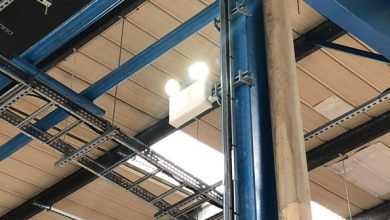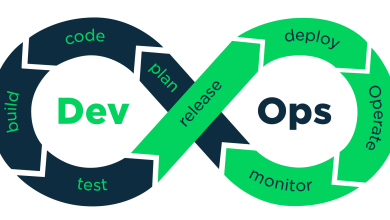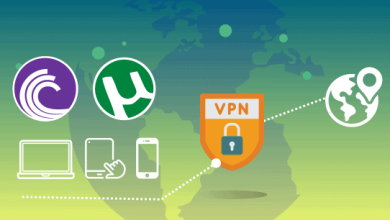How to Use Tech Advancements to Further Your Career in the Medical Field

With the ever-growing advancements in technology, it can be difficult to know how to stay ahead of the curve in your chosen field. If you’re looking to further your career in the medical industry, look no further! In this blog post, we will discuss some of the most important ways that technology can help you excel in your career. From online learning tools to communication platforms, we have got you covered!
Get A Masters Degree Online
When it comes to furthering your career in the medical field, one of the best things you can do is get a master’s degree. And thanks to technology, you can now do this entirely online!
That’s right – there are many accredited universities that offer online master’s degrees in a variety of medical fields. So whether you’re looking for a Nursing Masters, a Masters in Healthcare Administration, or a Masters in Public Health, you’re sure to find a program that’s right for you. Not only is getting a master’s degree online more convenient than ever, but it’s also more affordable.
Many online programs offer tuition discounts and financial aid options, so be sure to do your research before enrolling. And once you have your degree, you’ll be well on your way to a successful career in the medical field!
Networking Has Never Been Easier
In the past, networking was something that happened in person. You would go to conventions and meet people who worked in your field, exchange business cards, and maybe keep in touch if you were lucky. But with the advent of social media, networking has become much easier and more effective.
LinkedIn is a great platform for connecting with other professionals in your field, and you can use it to find job postings, research companies, and stay up-to-date on industry news.
You can also connect with other professionals on Twitter by following relevant hashtags and participating in conversations. By using social media to network, you can reach a much larger audience and build relationships that can help further your career.
Tech Has Leveled Disparity
Technology has been a major equalizer in the medical field. It has allowed doctors to provide better care for their patients and connect with other professionals more easily.
The internet has also given rise to many online medical communities where doctors can share information and advice. These advancements have made it easier for everyone to get the care they need, regardless of their location or financial situation.
While technology has made it easier for everyone to get medical care, there are still some disparities that exist. For example, rural areas often have less access to quality medical care than urban areas. This is because there are fewer doctors and hospitals in rural areas.
Also, people who live in poverty often have less access to quality medical care than people who are more affluent. This is because they often can’t afford to pay for private health insurance or the out-of-pocket costs associated with getting care.
AI Tools Have Made Things Easier
The advancement of artificial intelligence has allowed for many previously impossible tasks to be completed with ease. In the medical field, this technology can be used in a number of ways to make your job easier. From diagnosing patients to keeping track of your own appointments and paperwork, there are a number of ways that AI can help you in your career.
One of the most useful ways that AI can help you in your career is by assisting with diagnosis. This can be done in a number of ways, but one of the most common is through the use of medical imaging. By using tools like MRI and CT scans, AI can help doctors to get a better look at what is going on inside the body and make more accurate diagnoses.
Another way that AI can help you in your career is by keeping track of your appointments and paperwork. This can be a difficult task for any doctor, but it is especially difficult if you have a lot of patients. By using an AI tool to keep track of your appointments, you can ensure that you never miss an appointment and that your paperwork is always up to date.
Use Tech To Improve Your Patient Care
Technology can help you keep better track of your patients’ medical records, communicate with them more easily, and even improve the quality of care you provide. Here are a few ways to use technology to improve your patient care:
Keep Better Records: Electronic health records (EHRs) are becoming more and more common, and for good reason. They can help you keep track of your patient’s medical histories, medications, and allergies in one place. This can be a huge time-saver when you’re trying to provide the best possible care for your patients.
Communicate More Easily: Thanks to technology, gone are the days of playing phone tag with patients. Now, you can use email, text messaging, and even video conferencing to communicate with your patients. This can be a great way to answer questions, give updates on test results, and provide education on various health topics.
Improve the Quality of Care: Technology can also help you improve the quality of care you provide. For example, you can use electronic prescribing to make sure your patients get the medications they need. Patients who live in remote locations can also receive care through telemedicine.
By using technology to improve your patient care, you’ll be able to provide better care for your patients and further your career in the medical field. So don’t be afraid to embrace new technology—it can be a great asset in your career.
Technology has made it easier for everyone to get medical care, but there are still some disparities that exist. Artificial intelligence has allowed for many previously impossible tasks to be completed with ease. In the medical field, this technology can be used in a number of ways to make your job easier. Use tech to improve your patient care, and you’ll be able to provide better care for your patients and further your career in the medical field. So don’t be afraid to embrace new technology—it can be a great asset in your career.














